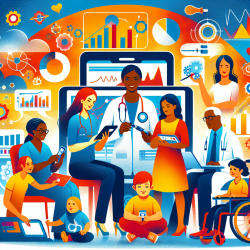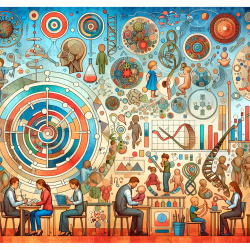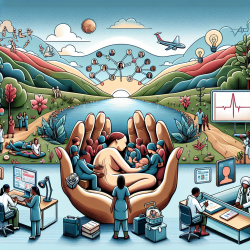The DNA Data Bank of Japan (DDBJ) has been a cornerstone in genetic research for over three decades. It provides a comprehensive repository of nucleotide sequences and associated biological information, making it an invaluable resource for researchers worldwide. As a practitioner in the field of online therapy services, understanding and integrating the outcomes of such research can significantly enhance your practice. This blog will explore how you can leverage the findings from the DDBJ's 30th anniversary report to improve your skills and encourage further research.
Understanding the DDBJ's Role
The DDBJ is part of the International Nucleotide Sequence Database Collaboration (INSDC), which includes GenBank in the United States and the European Nucleotide Archive. This collaboration ensures that genetic data is freely accessible to researchers globally. The DDBJ's services include the Japanese Genotype-phenotype Archive (JGA), which stores genotype and phenotype data from human individuals under strict access controls.
Implementing Research Outcomes
The DDBJ's advancements in data submission, retrieval, and analysis offer several opportunities for practitioners:
- Data Management: Utilize the DDBJ's submission systems to manage large-scale genetic data efficiently. This can improve your ability to handle complex datasets in therapeutic contexts.
- Research Collaboration: Engage with international research communities through platforms like the DDBJ Group Cloud service. Sharing pre-publication data can foster collaboration and innovation in therapeutic practices.
- Compliance and Ethics: Stay informed about amended rules for personal information protection. Understanding these regulations ensures ethical handling of sensitive genetic data in therapy settings.
The Power of Supercomputing
The DDBJ's use of supercomputing technology is a game-changer for data analysis. Practitioners can benefit from this by:
- Enhanced Analysis: Leverage supercomputing capabilities for more accurate and rapid analysis of genetic data, leading to better-informed therapeutic decisions.
- Sustainability: The shared-cost model for supercomputer use promotes efficient resource utilization, ensuring long-term access to cutting-edge technology.
Navigating Future Directions
The DDBJ is continuously evolving to meet the demands of modern research. As a practitioner, staying updated with these developments can provide new tools and methodologies for your practice:
- Trusted Servers: The introduction of Trusted Servers allows secure analysis of personal genomic data, offering new avenues for personalized therapy approaches.
- Bioscience Information Portal: Access a one-stop service for databases and tools that support various life science fields, enhancing interdisciplinary collaboration.
Encouraging Further Research
The vast resources available through the DDBJ provide ample opportunities for further research. Practitioners are encouraged to delve deeper into specific areas such as genotype-phenotype correlations or ethical considerations in genetic data usage. By engaging with ongoing research initiatives, you can contribute to advancing therapeutic practices and improving patient outcomes.
Conclusion
The DNA Data Bank of Japan's 30-year legacy offers a wealth of knowledge and resources that can significantly enhance your practice as a practitioner in online therapy services. By implementing research outcomes and engaging with ongoing developments, you can stay at the forefront of therapeutic innovation.










